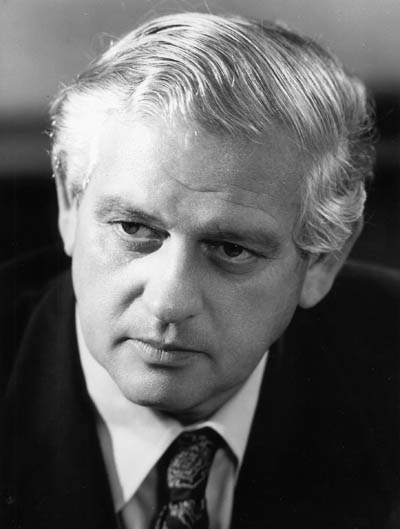ANDREW JOHNSTONE is exhausted. He’s been interviewing Jacinda Ardern for a marathon two hours, and she’s just warming up.
 Late in 2015 Jacinda Ardern was increasingly in the news and I started wondering what she was about. I asked her for an interview and she gave me one.
Late in 2015 Jacinda Ardern was increasingly in the news and I started wondering what she was about. I asked her for an interview and she gave me one.
She explained that people walked up to her in supermarkets and on the street to comment on her looks, notably her smile. She said that ‘horsey’ was a word often thrown at her and she wondered, as did I, how that worked? It seems pretty presumptuous and somewhat insulting, but then maybe it’s a way we have of keeping people in their place. That she copes is good sign.
But this time we were sitting in front of microphones in the studio so it could be captured for podcast, but a technical fault with the recording gear meant the finished product was a distorted mess.
A while later, I was chatting with a friend about Labour and he said that the party’s salvation would be found with Ms Ardern. I shook my head, once again demonstrating an astonishing ability for getting everything wrong, and said that after interviewing her I wasn’t so sure. “Do tell?” he asked. “It came down to some fence sitting,” I replied.
We chatted about music she liked and her Mormon upbringing in Matamata. I’m a Catholic boy from just down the road in Cambridge, and related to her difficulty squaring up socially conservative familial traditions against a naturally progressive disposition. We talked about serious social issues and ones less serious, like marijuana and the right to die.
 She wasn’t going to say much about the latter stuff except a non-committal, “Well I guess it’s time we took a serious look at these things,” which made me think that while she was up for pushing things along, it wasn’t yet time to rock the party line. I am wary of fence sitting, but then I have the luxury of not being in the political game and can say what I want when I want. Later, I came to the conclusion that I was being a bit hard on her.
She wasn’t going to say much about the latter stuff except a non-committal, “Well I guess it’s time we took a serious look at these things,” which made me think that while she was up for pushing things along, it wasn’t yet time to rock the party line. I am wary of fence sitting, but then I have the luxury of not being in the political game and can say what I want when I want. Later, I came to the conclusion that I was being a bit hard on her.
Otherwise, the interview fair hummed along until I suggested that Grant Robinson, Ardern’s friend, advisor and Labour Finance spokesperson, might just be another Labour neo-liberal. “He is anything but,” she said in that way that undid Mark Richardson so well on last week’s morning radio show AM.
It turns out Robertson is made from the same left leaning Kiwi socialist mould as she is, though she was at pains to make the point that she was no ideologue – indicating that pragmatic centrism is more her thing. “What is left and right after all? What do those things actually mean?” I wanted to say that ‘left’ is socially progressive and ‘right’ socially conservative, and that Kiwis are typically centrist (a bit of both) by inclination, but I didn’t and let her go on.

“I am a policy geek,” she says in a humble if studied manner, and explains some recent Parliamentary Select Committee work on the Coroner’s Act. That she enjoyed the detail and the discussion is obvious, and in the telling she reveals how NZ’s MMP method has resulted in a remarkably co-operative Parliament at work behind the theatre of the House-debating chamber.
I am actually a little inspired, and later spend some time reading and learning more about the Select Committee process. “Better than referendums,” she explains, and it’s obvious she does not like that method at all. “Besides, what would we [politicians] do if we decided everything by referendum?” “Well, debate and influence, legislate”, I wanted to say but that seemed rude and I let it slide.
She explains that referendums aren’t really for Kiwis, and I could have said that it was a referendum that gave us MMP and the wherewithal to create the efficient and centrist political system we have today, but I didn’t. Being a referendum believer I was a bit annoyed by this dismissal but she got me to thinking, and lately I have come around to her way seeing things.
 What is Helen Clarke’s most enduring legacy? Probably inclusivity. Clarke apologised for historic racist crimes against the Samoan and Chinese and welcomed the LBGT community into the mainstream. She let beneficiaries be and advanced the cause of women. Also, she suffered no fools and managed to keep NZ out of America’s wars of retribution. Clarke had steel, and so does Ardern.
What is Helen Clarke’s most enduring legacy? Probably inclusivity. Clarke apologised for historic racist crimes against the Samoan and Chinese and welcomed the LBGT community into the mainstream. She let beneficiaries be and advanced the cause of women. Also, she suffered no fools and managed to keep NZ out of America’s wars of retribution. Clarke had steel, and so does Ardern.
‘Ardern The Fuck Up’ has entered the lexicon. If we have learned one thing since she took over the leadership of the Labour Party it’s that when push comes to shove she can curdle milk with a tone, glance or finger wag, much like Clark. Otherwise it’s debate, discussion and consensus. But as far as pressing problems like housing and child poverty, I suspect it’s going to be, “Let’s do this”.
She is fond of quoting Peter Fraser, NZ’s second Labour PM and part of the crew that turned NZ into the world’s first fully functional all purpose social democracy back in 1935. Savage, Fraser and co were all about doing.
By the time the Second World War rolled around an all-out campaign against poverty had largely succeeded. Twenty years later NZ is the world’s second richest country, and by the 1970s Labour PM Norman Kirk resides over the world’s most egalitarian economy. Ardern admires Kirk as well, and says so a few times.
 It was a long interview, almost two hours, and I was drained. She wasn’t even warmed up, and no, she did not want to be Prime Minister but well, you’ve got to say that, don’t you? You don’t want to look too forward or ambitious. This country prefers its political leaders with a dose of humility, and whether she meant it or not you can tell she has doubts about herself, and that’s got to be a good thing.
It was a long interview, almost two hours, and I was drained. She wasn’t even warmed up, and no, she did not want to be Prime Minister but well, you’ve got to say that, don’t you? You don’t want to look too forward or ambitious. This country prefers its political leaders with a dose of humility, and whether she meant it or not you can tell she has doubts about herself, and that’s got to be a good thing.
 New Zealand’s first Labour Prime Minister, Michael Joseph Savage, said lots of inspiring things but two quotes come to mind. “Nothing is too good for my New Zealanders,” and “Labour is Christianity in action” (and he wasn’t meaning that distorted evangelical shit – he meant love, compassion and generosity of spirit). We have a bit of this going on with Ardern, a modern social democrat with an egalitarian outlook. Lately, we have been a wee bit complacent and its time we took a good long look at who we are and what we want as a people, and regardless of the outcome of the 2017 election, Ardern is stirring up the silt. This is a good thing.
New Zealand’s first Labour Prime Minister, Michael Joseph Savage, said lots of inspiring things but two quotes come to mind. “Nothing is too good for my New Zealanders,” and “Labour is Christianity in action” (and he wasn’t meaning that distorted evangelical shit – he meant love, compassion and generosity of spirit). We have a bit of this going on with Ardern, a modern social democrat with an egalitarian outlook. Lately, we have been a wee bit complacent and its time we took a good long look at who we are and what we want as a people, and regardless of the outcome of the 2017 election, Ardern is stirring up the silt. This is a good thing.














